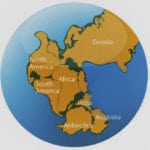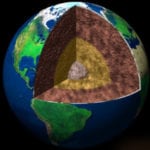 Weird Stuff
Weird Stuff  Weird Stuff
Weird Stuff  Miscellaneous
Miscellaneous Top 10 Things Crypto Was Supposed to Change & What Actually Did
 History
History 10 Huge Historical Events That Happened on Christmas Eve
 Music
Music 10 Surprising Origin Stories of Your Favorite Holiday Songs
 History
History 10 Less Than Jolly Events That Occurred on December 25
 Weird Stuff
Weird Stuff 10 Funny Ways That Researchers Overthink Christmas
 Politics
Politics 10 Political Scandals That Sent Crowds Into the Streets
 Weird Stuff
Weird Stuff Ten Bizarre Facts About The Doge Meme
 Our World
Our World 10 Ways Your Christmas Tree Is More Lit Than You Think
 Movies and TV
Movies and TV The 10 Coolest Stars to Set Sail on The Love Boat
 Weird Stuff
Weird Stuff 10 Fascinating Facts You Might Not Know About Snow
 Miscellaneous
Miscellaneous Top 10 Things Crypto Was Supposed to Change & What Actually Did
 History
History 10 Huge Historical Events That Happened on Christmas Eve
Who's Behind Listverse?

Jamie Frater
Head Editor
Jamie founded Listverse due to an insatiable desire to share fascinating, obscure, and bizarre facts. He has been a guest speaker on numerous national radio and television stations and is a five time published author.
More About Us Music
Music 10 Surprising Origin Stories of Your Favorite Holiday Songs
 History
History 10 Less Than Jolly Events That Occurred on December 25
 Weird Stuff
Weird Stuff 10 Funny Ways That Researchers Overthink Christmas
 Politics
Politics 10 Political Scandals That Sent Crowds Into the Streets
 Weird Stuff
Weird Stuff Ten Bizarre Facts About The Doge Meme
 Our World
Our World 10 Ways Your Christmas Tree Is More Lit Than You Think
 Movies and TV
Movies and TV The 10 Coolest Stars to Set Sail on The Love Boat
10 Reasons Life May Be A Computer Simulation
Philosophers as far back as Plato millennia ago speculated that what we see may not be real at all. With the advent of computers, the idea took on new life, especially in recent years, with films like Inception, Dark City, and the Matrix trilogy. Is it possible that the world is just a computer simulation?
10Ancestor Simulators

Computers now process huge amounts of data, and some of the most intense and productive tasks involve simulations. Simulations consider multiple variables and use artificial intelligence to analyze them and examine outcomes. Some simulations are games. Some are models of real-life situations, such as the spread of disease. Some are “history simulators,” which can be games (like Sid Meyer’s Civilization) or can mimic the real-life growth of society over time.
That’s how simulations run now, but computers keep getting faster. Processing power has doubled periodically for decades, and computers 50 years from now may well be millions of times more powerful than any today. Better computers would bring much bigger and better computer simulators—including history simulators. If computers get powerful enough, they would create history simulations so real that the self-aware beings within them would have no idea they were part of a program.
Think that’s too far out there? Harvard’s Odyssey supercomputer can simulate 14 billion years in only a few months.
9 If Someone Can, They Will

Okay, so it may be possible to create a universe inside a computer. But would it be moral? Humans are complex beings with feelings and relationships. Mightn’t there be something wrong in creating a whole fake world of them? Wouldn’t the responsibility for every action in that universe fall on our shoulders, and wouldn’t it be too much for us to bear?
Maybe. But that doesn’t matter. Because to some people, the idea of running a simulation would just be too tempting. And even if, for whatever reason, history simulators were illegal, it would just take a single person to run one and create our reality. It would take just one person, who’d consider the matter no more significant than a game of The Sims.
People may also have good reasons for creating such simulators, beyond just entertainment. Humanity could be facing death, forcing scientists to create our world as a massive diagnostic test. The simulation would help them find what went wrong with their real world and figure out how to save themselves.
8Visible Flaws

If a simulation is advanced enough, those inside needn’t recognize it as a simulation at all. If you were to grow a brain in a vat and manipulate it with stimuli, it wouldn’t know it’s in a vat. It would assume itself a living, breathing, active person.
But even advanced simulations can have flaws, right? Wouldn’t we notice some imperfections, some “glitch in the Matrix”?
Maybe we do see such glitches in our everyday lives. The Matrix offered the example of déjà vu—when something seems inexplicably familiar, the simulation may be skipping like a scratched CD. Supernatural elements, like ghosts or miracles, could also be glitches. According to simulation theory, people really do witness these phenomena, and they do so because of bugs in the simulation’s code.
The Internet offers plenty of anecdotal evidence of these glitches. Keep your mind and eyes open, and maybe you’ll see some for yourself.
7 Math Makes Up Life

Everything in the universe is quantifiable in some way. Even life is quantifiable, despite medicine’s long reputation as an “inexact science.” The Human Genome Project, which sequenced the chemical base pairs that make up human DNA, was solved using computers. All the secrets of the universe are solved using math. In fact, we can explain the universe better using math than we can with words.
If everything is mathematical, everything could be broken down to binary code. So if computers and their data progress enough, could a functional human be created using the genome sequence inside a computer? And if you can build one being, mightn’t you build a whole world of them?
Scientists speculate that someone may have already done that and created our world. To determine whether we’re living in a simulation, researchers are undertaking serious investigations—by examining the math that makes up our universe.
6The Anthropic Principle

It’s amazing that humans exist. For life to start on Earth, we needed everything to be just right. We’re the perfect distance away from the Sun, the atmosphere has the correct composition, and gravity is just powerful enough. And though there may be many other planets with those conditions, life gets even more impressive when you widen your perspective beyond Earth. If some cosmic factor like dark energy were even a little stronger, life probably wouldn’t exist, either here or anywhere else in the universe.
The anthropic principle asks, “Why? Why did these conditions come about so perfectly for us?”
One explanation is that the conditions were deliberately set in place with the intention of giving us life. Every convenient factor was a fixed condition in some vast lab experiment. The factors were just plugged into the universe, and then the simulation was started. This let existence and our individual planet evolve the way it has.
A consequence of this is that those behind the simulation needn’t be humans at all. Some other set of beings may be running it, and they choose to hide their presence from us. Perhaps alien life knows how to manipulate the computer program and can make themselves invisible to us.
5 Parallel Universes

The theory of parallel worlds, or the multiverse, posits an infinite number of realities with an infinite number of possibilities within them. Picture the floors of an apartment building. Universes are part of the multiverse much like floors are part of the building—they share a common layout, but each is distinct, and they’ll contain different things. Jorge Luis Borges likened the multiverse to a library. Within the library are an infinite number of books; some differ by just a letter, while others are completely different stories.
The theory has all sorts of crazy implications for the meaning of life. But if there really are multiple universes, why did they come about? How come there are so many?
If we’re in a simulation, the multiple universes are multiple simulations running at once. Each simulation has its own set of variables, and this isn’t random. The simulation’s creator plugged in different variables to test different scenarios and observe different outcomes.
4 Fermi’s Paradox

Our planet is one of many with conditions that could support life, and our sun is quite young compared to others in the universe. You therefore might expect proof of life elsewhere—from planets where life runs parallel to ours or from ones where life began eons earlier.
Furthermore, humans have ventured into space, so shouldn’t civilizations elsewhere have also tried space travel? With a billion other galaxies out there, some of which are billions of years older than ours, wouldn’t at least one have mastered space travel? Since Earth has the conditions for life, you’d even expect Earth to have been colonized by an advanced civilization at some point.
Yet we have found no trace of any other form of intelligent life in the universe. The Fermi Paradox can simply be summed up as—“Where is everybody?”
This ties back into simulation theory in a few different ways. If life should exist elsewhere but only exists on Earth, that could be evidence that we’re in a simulation. Those behind the simulation chose to simulate life nowhere else, for simplicity, or to see how humans do alone.
The multiverse theory says that there is indeed life on other planets—in most universe simulations. Ours is simply the one simulation that puts us alone in the universe. Going back to the anthropic principle, it could be this universe was created just for us.
Another theory, the planetarium hypothesis, offers one more possible answer. The simulation made various populated planets each wrongly think themselves alone in the universe. Perhaps the simulation aims to test the effects of ego-boosting on civilization?
3God Is A Programmer

People have long exchanged ideas of a god as a designer of the world. Some imagine one particular god as a bearded man in the clouds, but simulation theory says that that god (or any other) may instead be a bespectacled programmer hunched over a keyboard.
As we’ve established, a programmer can create worlds out of simple binary. The only question then is why the programmer would encode within us the desire to worship our creator, a key part of most religions.
This could be intentional or unintentional. Perhaps the programmer wants us to know that he or she exists, and wrote code to give us an innate feeling of having been created. Maybe the programmer intended nothing of the sort, but we’ve intuited the creator’s existence nonetheless.
The idea of a god as a programmer even goes along with the idea of intelligent design in two different ways. The first is it that code started life, letting everything evolve within the simulator to where we are today. The second is that it might make literal Creationism exactly right—just like the Bible says, God created the world and life in seven days, but he would have used a computer rather than cosmic powers.
2 Outside The Universe

What’s outside of our universe? With simulation theory, the answer would seem to be a supercomputer surrounded by advanced beings—but an even crazier possibility exists.
Those beings who run this simulation might be as fake as we are. There may be multiple layers of simulation. As Oxford philosopher Nick Bostrom suggests, “The post-humans running our simulation are themselves simulated beings; and their creators, in turn, may also be simulated beings. Here may be room for a large number of levels of reality, and the number could be increasing over time.”
It’s like you sat down to a game of The Sims and played it until your characters created a Sims game of their own. Their Sims, in turn, programmed and played their own game, while you are secretly part of an even larger simulation.
This still leaves a question: What is outside the creator’s “real” universe? It’s an idea so far removed from our lives that it could be impossible to speculate on it. But if simulation theory can at least explain our universe’s limited size and note what’s immediately outside it . . . well, that’s a good start in determining the nature of existence.
1Fake People Make For Easy Simulations

Even if computers get vastly more powerful, the universe might seem much too complex to fit in one. Each of the seven billion people currently alive is complex enough to rival any computer imaginable. And we’re an infinitesimal part of a vast universe, which contains billions of galaxies besides ours. It would be incredibly difficult, if not impossible, to take into account that many variables.
But a simulated world needn’t be anywhere as complex as it seems. A convincing simulation would need just a few detailed key figures and then a great many barely sketched secondary players. Think of games like those in the Grand Theft Auto series. They contain hundreds of people, but you only interact with a few. Life could be very much like that—you have yourself, and you have your close family and friends, but everyone you pass on the street? They’re not real. They have few thoughts and no emotions. They’re little more than set dressing.
Let’s stick with the open-world video game analogy for a bit. These games contain large “worlds,” but only your current location contains true action at any one time. Reality could run the same way. Areas out of sight could be stored in memory and are brought up only when needed, saving huge amounts of processing power. And what about distant areas that you’ll never visit, such as all those other galaxies? The simulation never needs to run these areas at all. It just needs to display convincing images when you try to view them.
But never mind people on the street or distant stars. You don’t even have proof that you exist, at least as the person you imagine. We think the past has happened because we have memories, and because of records like photos and books. But what if all that is just freshly written code? What if your life was turned on the last time you blinked your eyes?
The disturbing thing is that this is impossible to prove or disprove.
Robert Grimminck is a Canadian crime fiction writer. You can follow him on Twitter or on Facebook.








